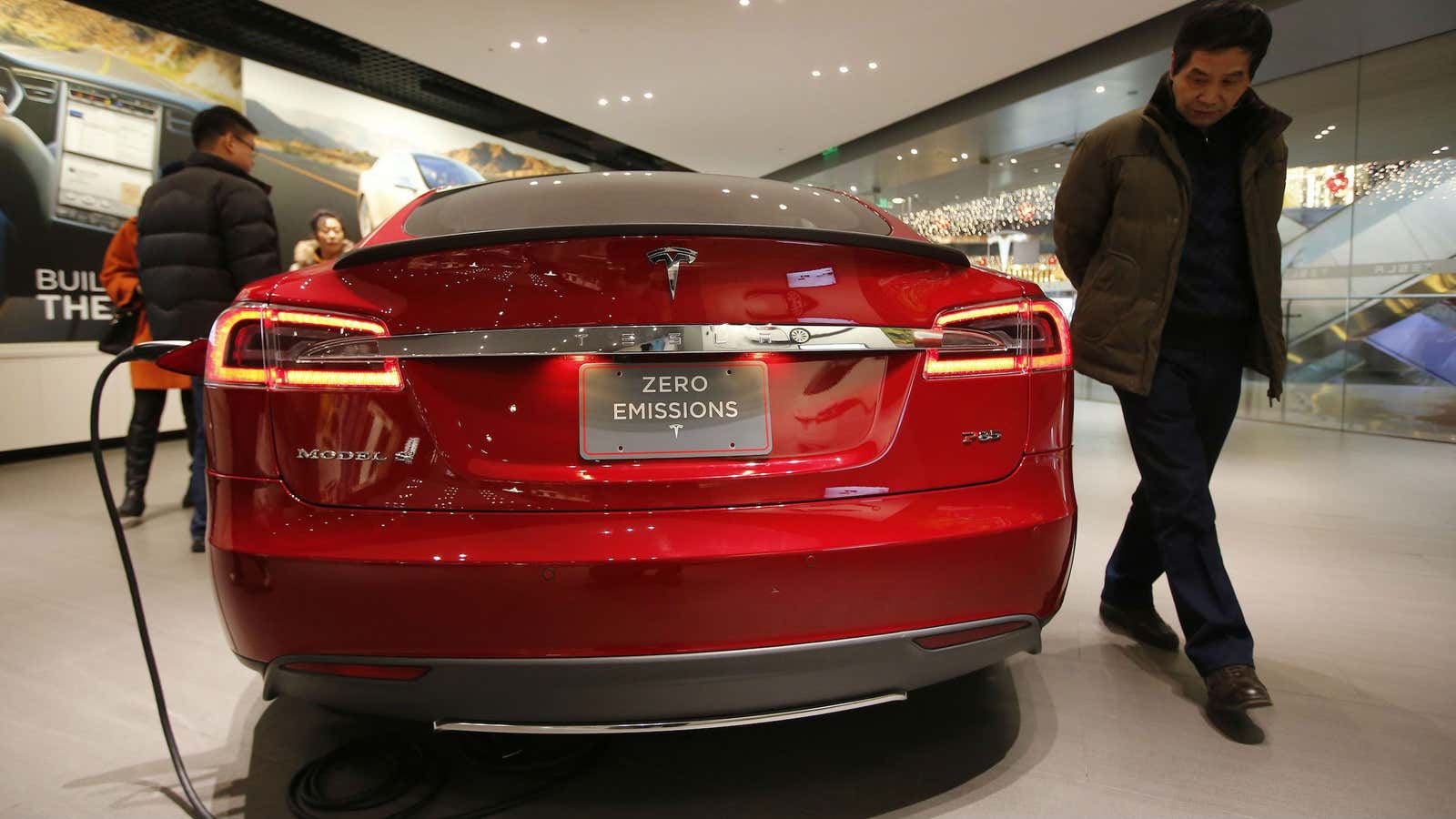Elon Musk has admitted that his plans for turning China into the next big market for his company’s electric cars isn’t going so smoothly. Musk told reporters yesterday Tesla’s sales in China were “unexpectedly weak” during the fourth quarter, without giving specific figures. The reason? “Misperceptions” among Chinese consumers about how to charge the cars, according to Musk.
But there are valid concerns that Tesla owners won’t be able to recharge their cars easily in China. Despite the country’s ambitions to promote electric cars in order to reduce air pollution in its overcrowded cities, a lack of charging stations has caused China to lag behind its goal of having 5 million alternative-energy vehicles on the road by 2020.
As of the end of 2013, China’s state grid had built 19,000 charging piles and 500 charging or battery swap stations for electric vehicles; China Southern Power built fewer, almost 4,000 in the densely-populated Pearl River Delta Region. (The U.S. is home to about 22, 294 charging stations, not including private ones.) Tesla, meanwhile, has set up 23 “supercharging” stations of its own in 10 Chinese cities. That’s compared with 124 similar stations in the US and 82 in Europe.
Moreover, personal charging stations are hampered by the fact that most of Tesla’s target customers in China live in apartments instead of detached homes—some 74% of urbanites live in multifamily homes—and park their cars in shared garages where parking operators have deemed charging stations a fire hazard.
But China isn’t standing still. Beijing just announced a pilot program to turn a set of LED street lamps in the capital into charging stations, and has plans to roll out about 10,000 by 2017. A charging system (link in Chinese) for an expressway between Beijing and Shanghai is expected to open up soon, too.
For his part, Musk is hopeful that talks with Chinese officials will earn Tesla a place on a list of electric-car makers whose cars are eligible for an exemption of 8% to 10% in sales tax. ”We’ll fix the China issue and be in pretty good shape probably in the middle of the year,” he said, hopefully.
